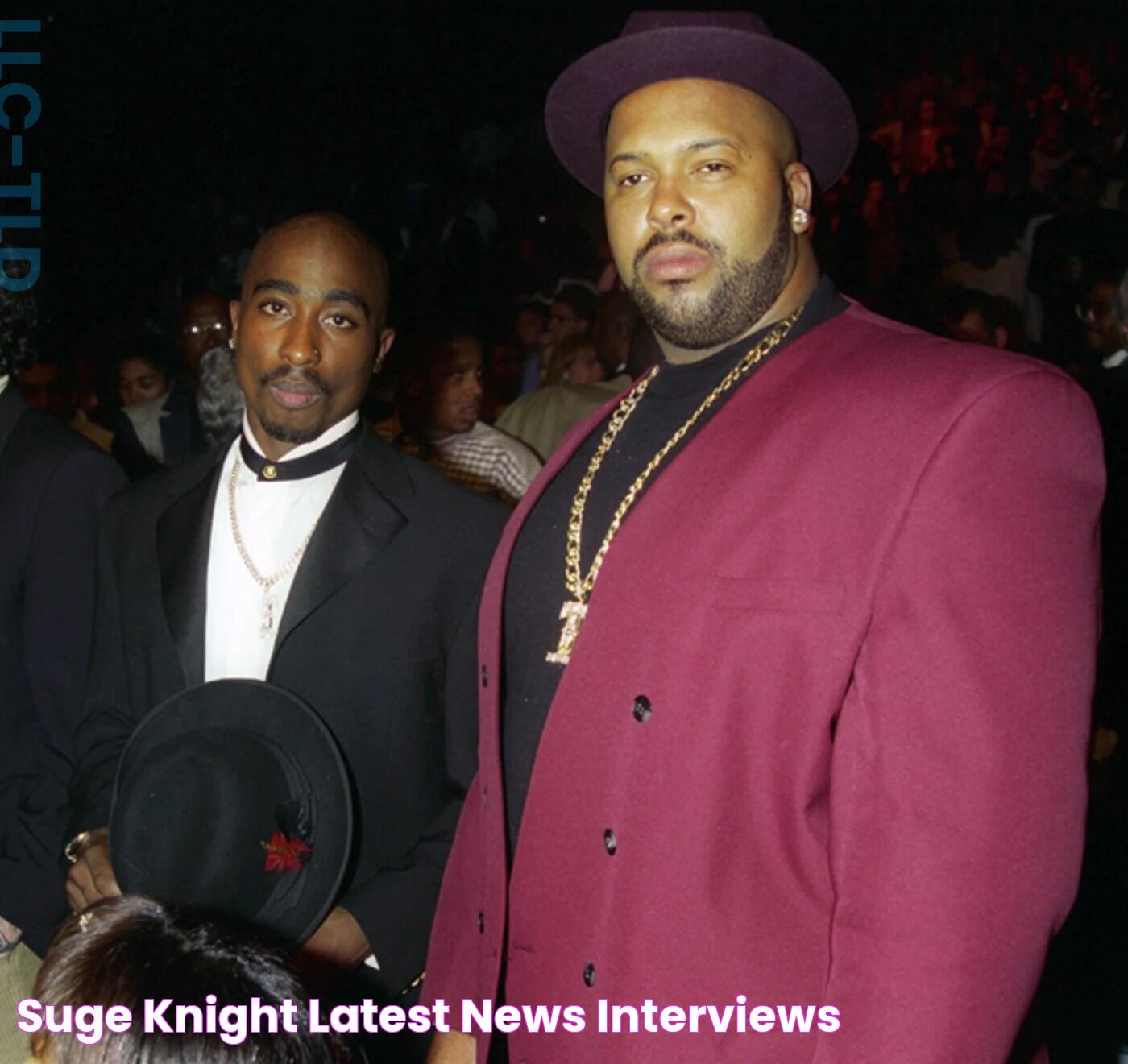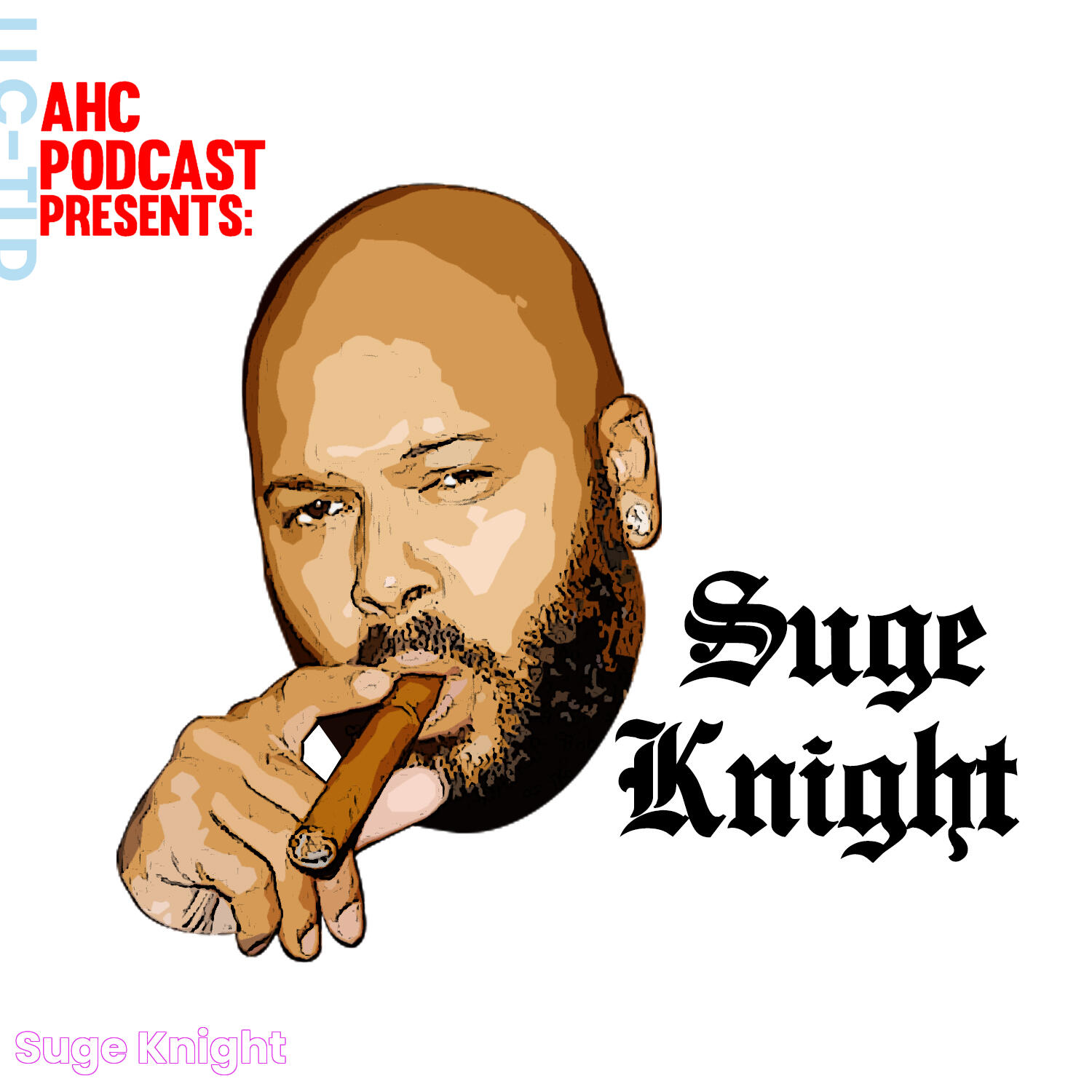Suge Knight, a name synonymous with the golden era of hip-hop, carries a legacy as controversial as it is impactful. Known for his towering presence and larger-than-life persona, Knight's influence on the music industry, especially through his co-founding of Death Row Records, has left an indelible mark. However, the story of Suge Knight extends beyond his professional achievements and ventures into a labyrinth of relationships, controversies, and personal struggles that have shaped his life.
Unraveling the complex web of Suge Knight relationships is no easy feat. From his dynamic partnerships with legendary artists like Tupac Shakur, Dr. Dre, and Snoop Dogg to his tumultuous legal battles and personal connections, Knight's life is a tapestry of highs and lows. Each thread in this web reveals a new layer, offering insights into the man behind the headlines. His relationships, both professional and personal, have not only influenced his career but have also played a pivotal role in shaping the narrative of hip-hop culture.
In this article, we’ll delve deep into the life of Suge Knight, exploring his biography, professional highlights, and the intricate relationships that have defined his journey. By the end, you'll have a comprehensive understanding of the forces that have shaped one of the most polarizing figures in music history. So, buckle up as we take a deep dive into the fascinating world of Suge Knight.
Read also:Dean Martins Fortune How Much Was Dean Martin Worth When He Died
Table of Contents
- Biography of Suge Knight
- Early Life and Personal Background
- How Did Suge Knight Start His Career?
- The Rise of Death Row Records
- Suge Knight and Tupac Shakur
- What Led to the Dr. Dre and Suge Knight Fallout?
- Snoop Dogg and Suge Knight: A Complicated Relationship
- Personal Relationships and Family
- Legal Troubles and Controversies
- How Did Suge Knight Impact Hip-Hop Culture?
- Business Ventures Beyond Death Row Records
- What Is the Current Status of Suge Knight?
- Frequently Asked Questions
- Conclusion
Biography of Suge Knight
Born Marion Hugh "Suge" Knight Jr. on April 19, 1965, in Compton, California, Suge Knight grew up in a community that would later become a cultural epicenter for hip-hop. His imposing figure and charismatic personality earned him the nickname "Suge" (short for Sugar Bear) during his high school years. Knight excelled in sports, playing football at El Camino College and later at the University of Nevada, Las Vegas (UNLV).
| Full Name | Marion Hugh "Suge" Knight Jr. |
|---|---|
| Birth Date | April 19, 1965 |
| Birth Place | Compton, California, USA |
| Profession | Music Executive, Entrepreneur |
| Known For | Co-founder of Death Row Records |
| Height | 6’2” (188 cm) |
| Net Worth | Estimated $200,000 (as of 2023) |
As the co-founder of Death Row Records, Knight became a central figure in the hip-hop industry, propelling artists like Tupac Shakur, Dr. Dre, and Snoop Dogg to superstardom. However, his career was not without controversy, as Knight faced numerous legal issues and allegations throughout his life. Despite these challenges, his contributions to the music industry remain undeniable.
Early Life and Personal Background
Suge Knight’s upbringing in Compton played a significant role in shaping his personality and career. Growing up in a neighborhood rife with gang activity and socio-economic challenges, Knight managed to steer clear of trouble during his early years. He was raised in a close-knit family, which provided him with a strong foundation and a sense of discipline that would later serve him in his entrepreneurial pursuits.
As a student-athlete, Knight's passion for football was evident. He was a standout player at Lynwood High School, earning a scholarship to El Camino College. His athletic prowess eventually led him to UNLV, where he played as a defensive lineman. Though his professional football aspirations were short-lived, Knight’s experiences on the field instilled in him a competitive spirit and resilience that would later define his career in the music industry.
How Did Suge Knight Start His Career?
Suge Knight's entry into the entertainment industry began as a bodyguard for celebrities, including Bobby Brown. This role provided him with a firsthand look at the inner workings of the music business and sparked his interest in the industry. Recognizing the potential for greater opportunities, Knight transitioned from security to management, representing artists and producers.
In the late 1980s, Knight established his own music publishing company. One of his early successes was negotiating a lucrative deal for Vanilla Ice’s hit song "Ice Ice Baby." Knight’s assertive negotiation tactics became legendary, albeit controversial, and set the tone for his future dealings in the industry. This period marked the beginning of Knight’s reputation as a formidable and, at times, intimidating figure in the business.
Read also:Corey Gamble Net Worth 2024 Financial Insights Amp Career Path
However, it was the founding of Death Row Records in 1991, alongside Dr. Dre and The D.O.C., that catapulted Knight into the limelight. The label quickly became a powerhouse, dominating the charts with groundbreaking albums like Dr. Dre’s "The Chronic" and Snoop Dogg’s "Doggystyle." Knight’s knack for identifying talent and his business acumen played a pivotal role in the label’s success.
The Rise of Death Row Records
Death Row Records is often regarded as one of the most influential record labels in the history of hip-hop. Under Suge Knight’s leadership, the label became a cultural phenomenon, producing some of the genre’s most iconic albums and shaping the sound of West Coast rap. Knight’s partnership with Dr. Dre, who served as the label’s primary producer, was instrumental in creating a string of chart-topping hits.
The label’s roster included some of the biggest names in hip-hop, such as Tupac Shakur, Snoop Dogg, and Nate Dogg. Albums like Tupac’s "All Eyez on Me" and the "Above the Rim" soundtrack further solidified Death Row’s dominance. The label’s success was not only a testament to Knight’s business savvy but also his ability to foster a sense of loyalty and camaraderie among his artists.
However, the label’s meteoric rise was accompanied by a fair share of controversy. Knight’s aggressive management style and alleged connections to gang activity often made headlines, casting a shadow over Death Row’s achievements. Despite these challenges, the label’s impact on the music industry remains unparalleled.
Suge Knight and Tupac Shakur
The relationship between Suge Knight and Tupac Shakur is one of the most talked-about aspects of Knight’s career. Their partnership began when Knight bailed Tupac out of jail in 1995, reportedly paying $1.4 million in exchange for the rapper signing with Death Row Records. This move marked the beginning of a fruitful yet tumultuous collaboration.
Tupac’s time at Death Row was highly productive, resulting in the release of the double album "All Eyez on Me" and the hit single "California Love." Knight’s influence on Tupac extended beyond music, as the two developed a close personal bond. However, their relationship was not without its challenges, as tensions within the label and external conflicts began to take a toll.
The tragic death of Tupac in 1996 marked a turning point for both Knight and Death Row Records. The circumstances surrounding Tupac’s murder remain a subject of speculation and debate, with Knight often finding himself at the center of conspiracy theories. Despite the controversies, Knight’s role in Tupac’s career is undeniable, and their partnership remains a defining chapter in hip-hop history.
What Led to the Dr. Dre and Suge Knight Fallout?
The fallout between Dr. Dre and Suge Knight is one of the most significant rifts in the history of Death Row Records. Initially, the duo’s partnership was highly successful, with Dre’s production skills complementing Knight’s business acumen. Together, they created some of the most iconic tracks in hip-hop, establishing Death Row as a dominant force in the industry.
However, tensions began to arise as differences in vision and management style became apparent. Dre, known for his meticulous and creative approach, often clashed with Knight’s more aggressive and business-oriented methods. These differences were further exacerbated by Knight’s alleged involvement in illegal activities, which began to tarnish the label’s reputation.
In 1996, Dre left Death Row to start his own label, Aftermath Entertainment, citing dissatisfaction with the label’s direction and Knight’s management style. The split marked the beginning of a decline for Death Row Records, as Dre’s departure signaled the loss of one of its most valuable assets. Despite their fallout, the contributions of both Dre and Knight to the music industry remain monumental.
Snoop Dogg and Suge Knight: A Complicated Relationship
The relationship between Suge Knight and Snoop Dogg is a complex narrative of collaboration, conflict, and eventual reconciliation. Snoop’s debut album, "Doggystyle," released under Death Row Records, was a massive success, solidifying his status as a hip-hop icon. Knight played a crucial role in promoting Snoop’s career, ensuring that the young artist received the recognition he deserved.
However, as tensions within Death Row began to escalate, Snoop found himself at odds with Knight. Disagreements over financial matters and the label’s management style led to a strained relationship. In 1998, Snoop left Death Row to join Master P’s No Limit Records, marking the end of an era.
Despite their differences, Snoop and Knight have occasionally expressed mutual respect for each other’s contributions to the industry. Their relationship serves as a testament to the complexities of navigating personal and professional dynamics in the high-stakes world of music.

